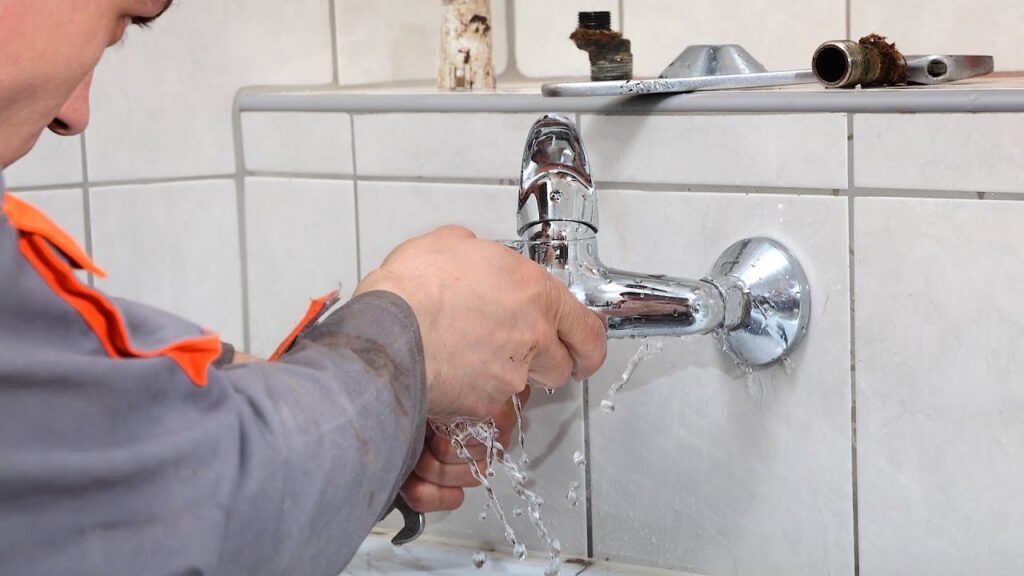Your Friendly Guide to Spotting and Fixing Water Leaks

Nobody wants to deal with a water leak. They’re sneaky, costly, and can turn your home into a soggy mess if you don’t catch them early. Whether it’s a drip in your drinking water pipes or a hidden leak somewhere else, knowing how to spot and fix these issues can save you a ton of hassle. In this guide, we’ll walk you through professional and DIY ways to detect and repair water leaks, with a quick nod to keeping your gas appliances in check too. Let’s dive in!
Related: Berkey Water Filters Review: Why It's a Must-Have for Clean Water Enthusiasts
Why You Should Care About Water Leaks
Water leaks aren’t just annoying, they can hit you hard in the wallet and damage your home. A small drip might not seem like a big deal, but it can waste gallons of water, spike your bills, and even lead to mold or structural issues. Leaks in your potable water system (the stuff you drink and cook with) are especially important to address since they affect your water quality. Catching them early is the name of the game.
Here are some red flags to watch for:
-
A water bill that’s suddenly through the roof
-
Wet spots, stains, or funky smells on walls or ceilings
-
The sound of running water when everything’s turned off
-
Weak water pressure that makes your shower feel like a trickle
-
Mold or mildew popping up where it shouldn’t
If any of these sound familiar, it’s time to play detective. Let’s talk about how to track down those leaks.
Calling in the Pros for Leak Detection
Sometimes, you need a pro to get the job done right. Professional water leak detection (detección de fugas de agua) uses high-tech tools to find leaks without tearing your house apart. Here’s what the experts bring to the table:
1. Listening for Leaks
Pros use super-sensitive microphones to pick up the sound of water sneaking out of pipes. It’s like giving your plumbing a stethoscope checkup, perfect for finding leaks buried underground or behind walls.
2. Thermal Cameras
Ever seen those cool infrared cameras on home renovation shows? They spot temperature changes caused by water leaks, making it easy to find issues without ripping out drywall.
3. Gas Tracing
This one sounds fancy, but it’s simple: pros pump a safe gas into your pipes and use special gear to find where it’s escaping. It’s a go-to for tricky leaks in potable water systems (detección de fugas de agua potable).
4. Pressure Checks
By testing the pressure in your pipes, pros can spot drops that scream “leak!” It’s a reliable way to confirm there’s an issue, especially in your drinking water lines.
Hiring a pro for detector de fugas de agua services means you get pinpoint accuracy and a plan to fix the problem (reparación de fugas de agua potable). They’ll make sure everything’s up to code and safe for your family.
DIY Leak Hunting: Be Your Own Detective
Not ready to call in the cavalry? You can try some detector de fugas de agua casero tricks at home. These won’t match pro-level precision, but they’re a great starting point to catch leaks early and save some cash.
1. Water Meter Trick
Your water meter is like a tattletale for leaks. Here’s how to use it:
-
Shut off all faucets, appliances, and anything that uses water.
-
Find your water meter (usually outside near the street) and jot down the numbers.
-
Wait an hour or two without using any water, then check the meter again.
-
If the numbers have moved, you’ve got a leak somewhere.
2. Eyeball Your Pipes
Grab a flashlight and check exposed pipes under sinks, in your basement, or in a crawlspace. Look for drips, rust, or damp spots. It’s low-tech but effective.
3. Toilet Tank Test
Toilets are sneaky leakers. Drop a few squirts of food coloring into the tank, wait 15–20 minutes, and peek in the bowl. If the water’s colorful without flushing, your toilet’s got a leak.
4. Screwdriver Hack
For a homemade listening device, grab a long screwdriver. Press the tip against a pipe and your ear to the handle. The metal can amplify the sound of a drip or hiss, helping you zero in on the problem.
These DIY tricks are perfect for spotting small issues or deciding if you need to call a pro for a bigger job.
Fixing Leaks: DIY or Pro?
Once you’ve found a leak, it’s time to fix it before your home turns into a waterpark. Some repairs are DIY-friendly, but others are best left to the experts.
DIY Fixes for Small Leaks
-
Pipe Tape or Epoxy: Got a tiny leak in an easy-to-reach pipe? Waterproof tape or epoxy putty can work as a quick patch.
-
Tighten Things Up: Loose fittings under a sink or on a pipe? A wrench might be all you need to stop the drip.
-
Faucet Fixes: A dripping faucet often just needs a new washer. It’s a cheap, quick fix you can do with basic tools.
When to Call a Pro
For leaks in potable water lines or hard-to-reach spots, don’t mess around—call a professional for reparación de fugas de agua. They’ll:
-
Replace damaged pipes or fittings
-
Make sure your drinking water stays safe
-
Fix underlying issues like corrosion or high pressure
Professional repairs ensure your plumbing is solid and your water is safe to drink.
Keeping Leaks at Bay
An ounce of prevention is worth a pound of cure, right? Here’s how to keep leaks from sneaking up on you:
-
Check Your Pipes Regularly: Peek at your plumbing once a year for signs of trouble.
-
Watch Water Pressure: Too much pressure can stress your pipes. A pressure regulator can help.
-
Insulate in Winter: Cold weather can make pipes burst. Wrap them up to stay safe.
-
Upgrade Old Plumbing: If your home’s pipes are ancient, consider swapping them for modern materials like PEX.
A Quick Word on Gas Appliances
While we’re talking home maintenance, let’s not forget gas appliances. Servicio de gasodomésticos covers things like stoves, heaters, and water heaters. Regular checkups keep them running safely and prevent dangerous gas leaks. If you smell gas or suspect a problem, call a pro immediately and steer clear of switches or flames until it’s fixed.
Related: Why Owning A Water Blaster Is An Absolute Must
Picking the Right Help
Whether you need a plumber for detección de fugas de agua or a technician for gas appliances, choose wisely. Look for:
-
Licensed and certified pros
-
Solid experience with water or gas systems
-
Good reviews from other customers
-
Clear pricing upfront
Wrapping It Up
Water leaks can be a pain, but with the right approach, you can catch and fix them before they cause major damage. Try some detector de fugas de agua casero tricks to start, and call in pros for detección de fugas de agua potable or reparación de fugas de agua when needed. And don’t skip those servicio de gasodomésticos checkups to keep your home safe. Stay proactive, and your home will thank you with fewer headaches and lower bills.
ADVERTISEMENT





